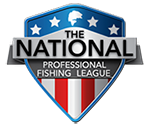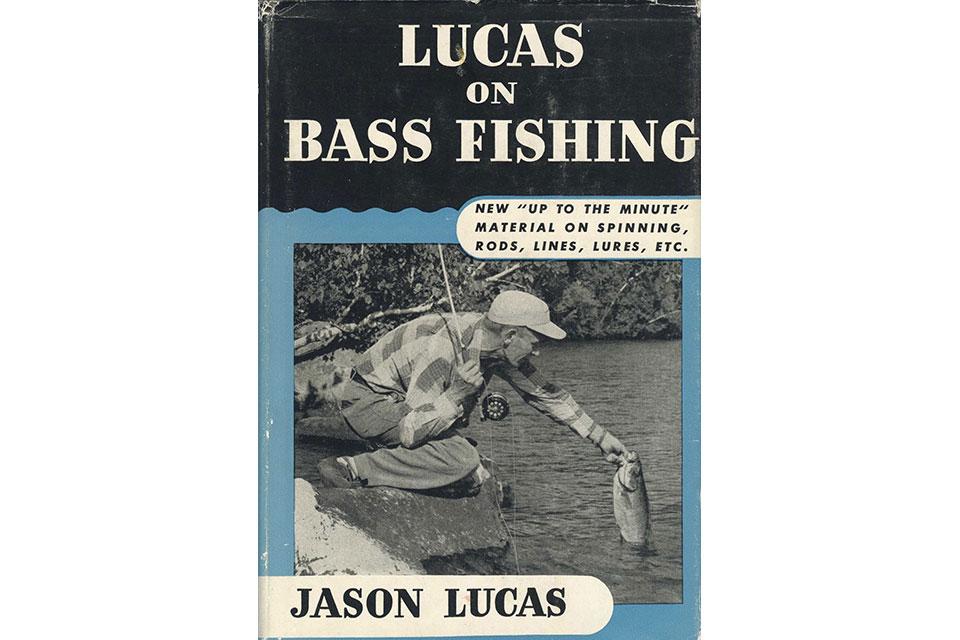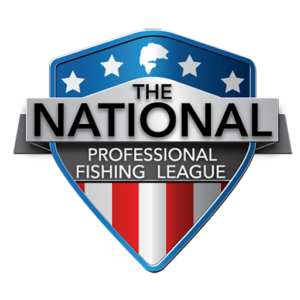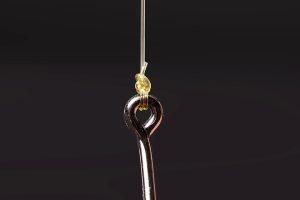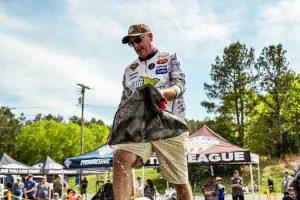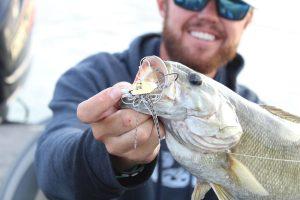Story by Ken Duke
In bass fishing history, there’s a short list of people who have legitimately moved the needle in our sport. One of them who was a household name in the bass world before the internet, forward-facing sonar or braided superlines was Jason Lucas. Not only was Lucas the most impactful fishing writer of his day, but he was arguably the best bass angler of the first half of the 20th century.
Jason Joseph Lucas was born on October 14, 1894 in Whitegate, Ireland … not exactly the place you’d expect to find a diehard bass chaser, but Lucas was different. He was a talented writer who came to the United States as a very young man, fascinated by tales of the American West.
Following the lead of western writers like Zane Grey, Lucas hoped to make his fortune by writing pulp fiction—gunslinger tales set in the Old West. In all, he wrote six such novels under the pen name Jay Lucas, including 7 Bar 7 Ranch (1934), Blaze McGee (1935), The Arizonan (1937), Boss of Rafter C (1937), and Desert Ranger (1939).
He also loved fishing and writing about fishing. When his novels failed to find a widespread audience and to pay the bills, he turned to outdoor writing and was quickly recognized for his no-nonsense prose and practical fishing advice.
In 1946 Ted Kesting was the editorial director of Sports Afield magazine — one of the “Big Three” outdoor publications, along with Field & Stream and Outdoor Life. To be the fishing editor of one of these magazines was to have a bully pulpit for angling advocacy. Up to that time, every fishing editor in Big Three history had been a trout aficionado.
Writers like Ted Trueblood and Ray Bergman championed the trout and fly fishing. Kesting realized that the tide of American sportfishing was turning in favor of the bass and saw opportunity with Lucas.
Kesting heard that Lucas was catching limits of bass from lakes just a few miles outside New York City — lakes “which everyone knew had been fished out years ago.”
“This man really knew something about fishing,” Kesting wrote in the introduction to the first edition of Lucas on Bass Fishing (1947). “The article had none of the old hackneyed dope that had been published in every outdoor magazine for the past fifty years. The information was new and came from first-hand experience.”
When Kesting asked Lucas to write a six-part series on his bass angling techniques, “The response from readers was immediate. They had been starving for fresh information on bass fishing for years, and mail poured in daily demanding more. I invited Lucas to become angling editor for Sports Afield.”
Lucas brought the bass and bass fishing to greater prominence. He wasn’t anti-trout as some of his Big Three predecessors had been anti-bass; he was simply a bass advocate.
Lucas’s final western novel, The Gun Fighter(1950) was published in London after Lucas was well established on the American fishing scene.
Sports Afield prospered during Lucas’ tenure, quickly becoming the most popular of the outdoor magazines. And he made other contributions to the world of bass literature outside of the magazine. In 1947, he became a naturalized U.S citizen and published Lucas on Bass Fishing, a practical how-to book on fishing when most of the books of that era were “me and Joe” stories. Lucas on Bass Fishing would be revised and reprinted in 1949 and 1962.
The author was matter of fact in his prose and practical in his advice. In his introduction he wrote, “I might add that whatever faults this book may have—and I know there will be many—no armchair theories will be found in it, for I have subjected all methods and theories which I mention to the most exacting tests, in much actual fishing, and find that they really lead to catching many bass.”
His style was blunt and often politically incorrect. The monthly column in which he answered reader questions quickly became one of the most popular sections of the magazine. Once, when asked by a reader what he thought of taking a woman fishing, Lucas replied, “I suppose you could have her row the boat if you could train one thus.”
No one would dare try that today.
Lucas was a bass fishing evangelist. Other than James Alexander Henshall, he is the most important writer in the history of our sport and deserves much credit for the surge in popularity of bass fishing between World War II and the 1970s bass boom.
In a passage that describes his passion and career, Lucas wrote, “I am still learning about fishing, and I hope to continue doing so as long as I live. I am always trying to disprove my own most strongly held theories, to find better ones; and when I do, the old ones promptly are thrown out the window. If that sad day should ever come when I think that I know all of it and have no more to learn, I trust that I may have intelligence enough to disappear quietly from the pages of sportsmen’s publications.”
Ultimately, Lucas didn’t leave Sports Afield because he had no more to learn or teach, but because the magazine ran advertisements for gear he considered “junk.” He quit in 1968, retiring to British Columbia, Canada, where he died in 1975 at the age of 78.
